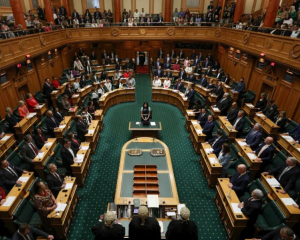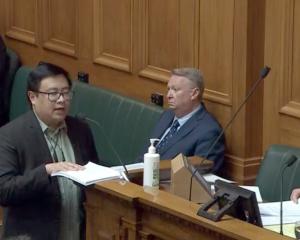The board has released its written reasons for turning down Macdonald's second bid for parole after a hearing at Christchurch Men's Prison on November 25.
The report, by an unnamed person, said Macdonald had worked on issues such as poor communication, stress and bottling up emotions, but had not "substantially addressed the deeper motivational drivers underpinning his past offending''.
The board said the forensic psychiatric assessment was prepared by a "widely experienced and highly qualified consultant forensic psychiatrist'' at the request of the board at Macdonald's first hearing in December 2012.
Macdonald was interviewed five times over three months for a total of 13 hours.
The psychiatrist agreed that Macdonald fell within the low risk of future violent and general reoffending, but said there were strong clinical features that indicated a higher risk.
Those included "denial, minimisation, selectiveness (omitting important details) and a striking superficial quality in relation to motivational factors related to his offending''.
Also noted was his history of "secretive behaviour'' which was acknowledged as driven by his motivation to "get away with'' things, and "evidence of absent, minimal or distorted appreciation of the impact of his offending behaviour on victims''.
The report said in "situations involving revenge, entitlement, perceived injustice, envy'', would present a high risk.
Macdonald is a minimum security prisoner and has not been mentioned in any incident or misconduct reports.
The board said he was described as a polite and compliant prisoner who does not present any management or security issues to staff or other prisoners.
He had been employed in the firewood yard, the forestry gang and, more recently, the community gang.
Macdonald had engaged in six treatment sessions with a senior departmental psychologist, focused on understanding his personality style and developing a safety plan.
At the end of the treatment Macdonald was reassessed as posing low/moderate risk of general re-offending. No further psychological treatment was recommended in prison.
In response to questions from the board Mcdonald said he was "sickened'' to think about how he was.
"He said he has changed. In counselling he worked on his emotions and learnt how to deal with them. He puts himself in his victims' shoes.
"He said he is sorry for the crimes he committed.''
The board said it did not accept that Macdonald had changed.
It had concerns about his release plan, his lack of support in the Christchurch area - where he planned to live - and the lack of detail in his "handshake'' work offer.
"Finally, he has not been tested in stressful situations - if he can't get work, if problems arise in relation to his children, if he has a dispute with someone, if the media became intrusive, for example.''
Parole was declined.
Macdonald is serving a sentence of five years imprisonment after pleading guilty to one charge of theft, three of intentional damage and two of arson. His sentence ends on April 6, 2016.












